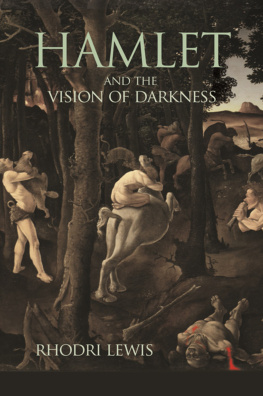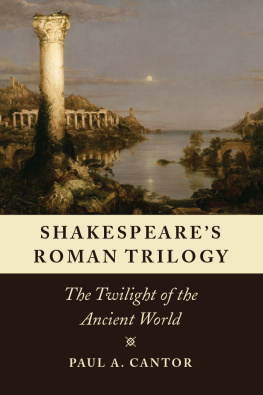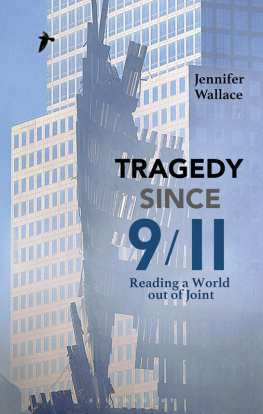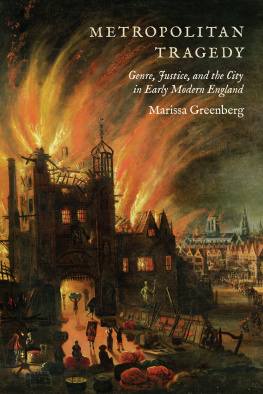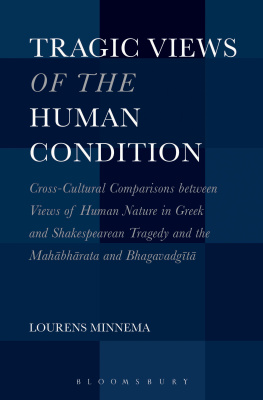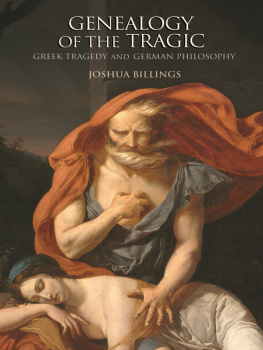Cover
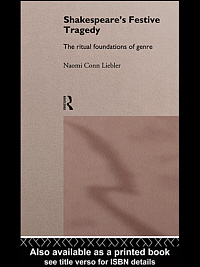
| title | : | Shakespeare's Festive Tragedy : The Ritual Foundations of Genre |
| author | : | Liebler, Naomi Conn. |
| publisher | : | Taylor & Francis Routledge |
| isbn10 | asin | : | 0415131839 |
| print isbn13 | : | 9780415131834 |
| ebook isbn13 | : | 9780203219744 |
| language | : | English |
| subject | Shakespeare, William,--1564-1616--Tragedies, Shakespeare, William,--1564-1616--Tragedies, Literature and society--History--16th century.--England , larpcal--Literatura inglesa (historia e critica) , Literature and society--History--17th century.--England |
| publication date | : | 1995 |
| lcc | : | PR2983.L5 1995eb |
| ddc | : | 822.3/3 |
| subject | : | Shakespeare, William,--1564-1616--Tragedies, Shakespeare, William,--1564-1616--Tragedies, Literature and society--History--16th century.--England , larpcal--Literatura inglesa (historia e critica) , Literature and society--History--17th century.--England |
Page i
SHAKESPEARES FESTIVE TRAGEDY
In Shakespearean studies, the category of the festive has been applied by critics only to the comedies. In this groundbreaking and provocative work, Naomi Conn Liebler introduces the category of festive tragedy. Shakespearean tragedy is, she argues, a celebration of communal survival, demonstrating what happens when a community violates or neglects the ritual structures that define and preserve it.
Lieblers highly original argument focuses upon tragedy as the formal representation of real social action and conflict. She views the community, not just the protagonist, as the real subject of the drama. Festive tragedy is concerned with ritual practice whose function is, as King Lears Tom OBedlam put it, to prevent the fiend and to kill vermin, that is, to protect and purge. The violation of this ritual practice jeopardizes the survival of the entire community.
Into her argument Liebler weaves the work of cultural anthropologists such as Clifford Geertz, Victor Turner and Mary Douglas and theories of drama by Aristotle, Brecht, Artaud and Girard. The result is a powerful, elegantly written work which extends the study of Shakespeares tragedies into whole new areas of anthropological criticism and dramatic theory.
Naomi Conn Liebler is Professor of English at Montclair State University, where in 1990 she was named Distinguished Scholar. She is the author of a variety of articles on Shakespeare and, with John Drakakis, is co-editor of a forthcoming reader on tragedy.
Page ii
This page intentionally left blank.
Page iii
SHAKESPEARES FESTIVE TRAGEDY
The ritual foundations of genre
Naomi Conn Liebler

London and New York
Page iv
First published 1995
by Routledge
11 New Fetter Lane, London EC4P 4EE
This edition published in the Taylor & Francis e-Library, 2002.
Simultaneously published in the USA and Canada
by Routledge
29 West 35th Street, New York, NY 10001
1995 Naomi Conn Liebler
All rights reserved. No part of this book may be reprinted or
reproduced or utilized in any form or by any electronic,
mechanical, or other means, now known or hereafter
invented, including photocopying and recording, or in any
information storage and retrieval system, without permission in
writing from the publishers.
British Library Cataloguing in Publication Data
A catalogue record for this book is available from the British Library
Library of Congress Cataloging in Publication Data
Liebler, Naomi Conn
Shakespeares Festive Tragedy: The Ritual Foundations of Genre/
Naomi Conn Liebler.
p. cm.
Includes bibliographical references and index.
1. Shakespeare, William, 15641616Tragedies. 2. Literature and
societyEnglandHistory16th century. 3. Literature and society
EnglandHistory17th century. 4. Rites and ceremonies in
literature. 5. Community life in literature. 6. Festivals in
literature. 7. Ritual in literature. 8. Literary form.
9. Tragedy. I. Title.
PR2983.L5 1995
822.33dc290 959687
ISBN 0-203-21974-0 Master e-book ISBN
ISBN 0-203-28772-X (OEB Format)
ISBN 0-415-08657-4 (hbk)
ISBN 0-415-13183-9 (pbk)
Page v
For John,
sine quo multo minor
and dedicated to the memory of my mother, Anne Conn
Page vi
This page intentionally left blank.
Page vii
For when the morrowupon a time quarrelled with the festivall day which went next before it, saying, that herselfe was busied and tooke a great deale of pains, preparing & providing with much travel those goods which the feast enjoied at her ease, with all repose, rest, and leisure: the Festivall day made this answer: Thou saidst true indeed; but if I were not, where wouldst thou be?
Plutarch, The Romane Questions 25
Page viii
This page intentionally left blank.
Page ix
CONTENTS
Acknowledgements | xi |
| FESTIVE TRAGEDY: How to prevent the fiend and to kill vermin | |
| SEEKING DEFINITIONS: Aristotle, Brecht, Artaud, and others | |
| THE RITUAL GROUNDWORK | |
The mockery king of snow: Richard II and the sacrifice of ritual | |
Thou bleeding piece of earth: the ritual ground of Julius Caesar | |
| COMMUNITAS, HIERARCHY, LIMINALITY, VICTIMAGE | |
Scattered corn: ritual violation and the death of Rome in Titus Andronicus | |
Poor sacrifices: a note on Romeo and Juliet | |
Bread and circuses: Coriolanus and St George | |
| THE HOBBY-HORSE IS FORGOT: Tradition and transition | |
Hamlets hobby-horse | |
In double trust: structures of civilization in King Lear and Macbeth | |
CONCLUSION: wRiting/Lost in translation | |
Notes | |
Bibliography | |
Index | |
Page x
This page intentionally left blank.
Page xi
ACKNOWLEDGEMENTS
This book emerges from more than a decade of starts and stops, during which time the encouragement of mentors and friends sustained both me and the work. Chief among these are Richard L. Levin, Rose Zimbardo, Martin Stevens, Inga-Stina Ewbank, Anne Paolucci, and Maurice Charney, who first suggested the books title. I am grateful to them all, and also to Vance Adair, Michael Bristol, Ed Hack, Milla Riggio, and Peggy Samuels for listening, reading early versions, suggesting improvements, listening again, propping me up, cheering me on, and still listening. In the collegial settings of several Shakespeare Association of America seminars, many of the ideas in this book had their first exposures to and their first critiques from a learned and generous community of scholars. I thank Janice Price and Talia Rodgers of Routledge for their abiding faith in this project, and Michael Bristol and Diane Purkiss, readers for Routledge, for their detailed and helpful critiques. My greatest debt is to John Drakakis for his patience, generosity, uncompromising argument, and equally uncompromising support.
Next page

